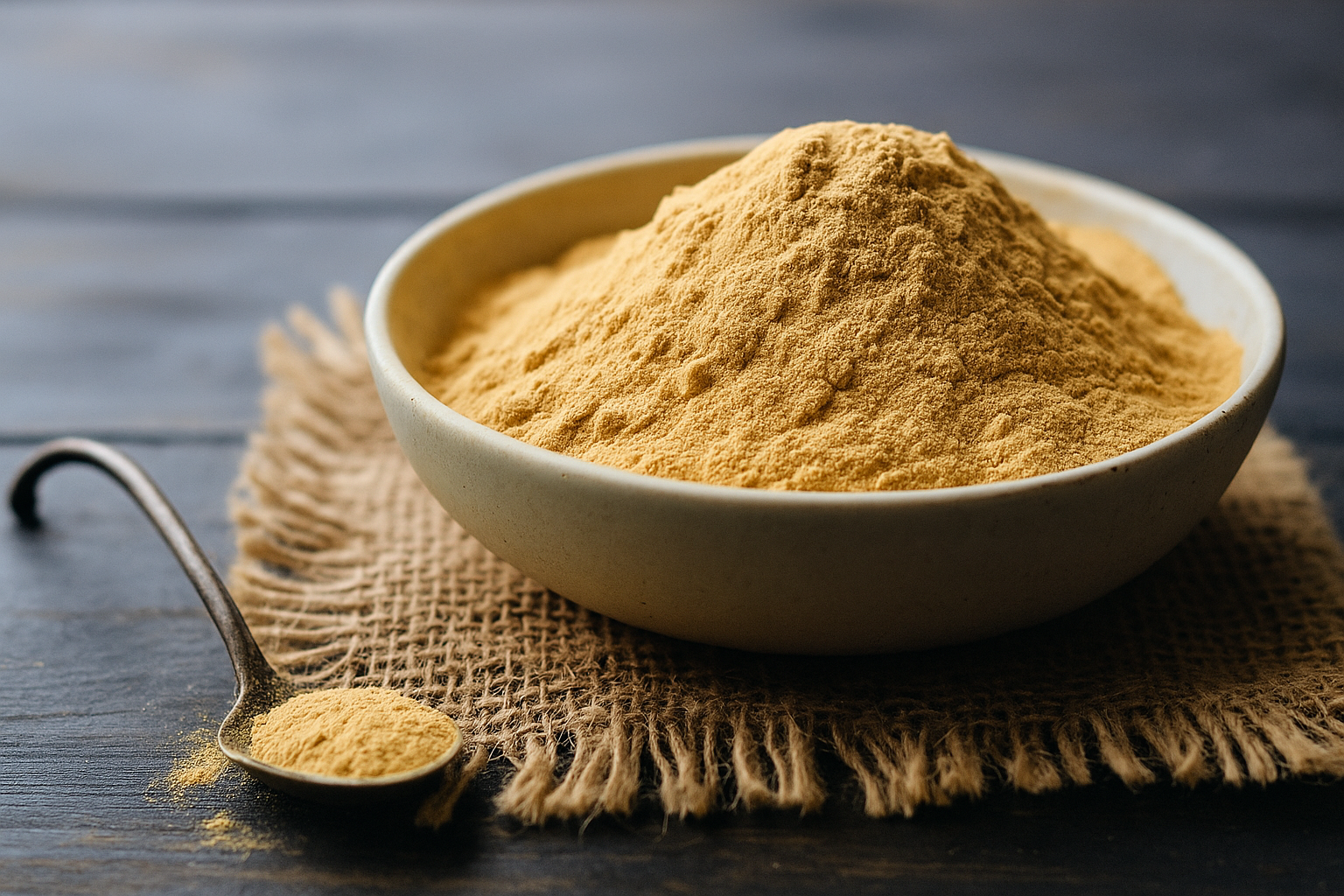The Beet Renaissance
Once known as a humble root vegetable, beetroot is enjoying a well-deserved comeback in the world of health and wellness. From detox smoothies to endurance-boosting juices, beetroot is no longer just a side dish—it’s a nutritional powerhouse making waves in superfood circles.
Driven by growing awareness of key beetroot benefits, this vibrant root is gaining popularity for its ability to support cardiovascular health, enhance brain function, and improve athletic performance. Packed with essential nutrients, antioxidants, and dietary nitrates, beetroot offers wide-ranging advantages for the entire body. Whether you’re aiming to shed pounds, boost stamina, or simply eat cleaner, it may be the missing ingredient in your health routine.
What Is Beetroot?
Beetroot, or Beta vulgaris, is a root vegetable commonly consumed either raw, cooked, or juiced. It’s part of the Chenopodiaceae family, which also includes chard and spinach.
Nutritional Profile (Per 100g of Raw Beetroot):
| Nutrient | Amount |
|---|---|
| Calories | 43 kcal |
| Carbohydrates | 9.6 g |
| Fiber | 2.8 g |
| Protein | 1.6 g |
| Fat | 0.2 g |
| Folate (B9) | 109 µg |
| Vitamin C | 4.9 mg |
| Potassium | 325 mg |
| Iron | 0.8 mg |
| Nitrates | 110–400 mg |
Note: Nitrate content varies significantly depending on soil conditions, growing methods, and beetroot variety. Average concentrations are typically around 250 mg/100g.
🧪 Source: EFSA, 2017
Why Is Beetroot Healthy?
Beetroot’s health benefits stem from its unique combination of antioxidants, nitrates, and anti-inflammatory compounds. Here’s how it supports your body:
Cardiovascular Health
Beetroot is renowned for its natural nitrates, which convert into nitric oxide in the body. This relaxes blood vessels, reduces blood pressure, and improves circulation.
- A 2015 review in Hypertension found that daily beetroot juice intake reduced systolic blood pressure by 4–7 mmHg in most cases.
- Larger reductions (up to 10 mmHg) are less common and often occur in people with high baseline blood pressure.
🫀 Key Takeaway: Regular beetroot intake may naturally support healthy blood pressure and vascular function.
Athletic Performance
Beetroot’s nitrates help the body use oxygen more efficiently, particularly during high-intensity exercise.
- According to the Journal of Applied Physiology, trained athletes consuming beet juice experienced up to 16% greater endurance in time-to-exhaustion tests.
- Casual exercisers may experience smaller, but still noticeable, performance improvements.
Key Takeaway: Beetroot may boost exercise stamina and oxygen efficiency, especially for endurance athletes.
Brain Function
Beetroot may improve cognitive performance by enhancing blood flow to the brain’s frontal lobes—especially important in aging adults.
- A study in Nitric Oxide journal (2017) showed improved neural efficiency in older adults consuming beet juice pre-exercise.
Liver Support
Beetroot contains betaine, a compound known to support liver function and cellular metabolism.
- While the term “detox” is often overused, beetroot does contribute to liver health by supporting methylation pathways and reducing oxidative stress.
- However, it doesn’t “flush toxins” in a magical way—liver health is multifactorial and depends on long-term habits.
Key Takeaway: Beetroot helps maintain optimal liver function, but it’s not a one-shot detox solution.
Digestive Health
With almost 3g of fiber per 100g, beetroot aids digestion, supports gut bacteria, and promotes regularity.
Top 7 Beetroot Benefits at a Glance
1. Lowers blood pressure
Beetroot is rich in dietary nitrates, which convert into nitric oxide in the body—relaxing blood vessels and improving circulation. Clinical trials consistently show that beetroot juice can reduce systolic blood pressure by 4–7 mmHg, especially in people with hypertension.
- Daily intake of beet juice may reduce cardiovascular risk and support long-term heart health.
2. Boosts stamina and athletic performance
Beetroot enhances oxygen efficiency and exercise endurance, making it a popular pre-workout option. The high nitrate content reduces the oxygen cost of movement, helping athletes perform longer at the same effort level.
- Athletes can see up to 16% improvement in time-to-exhaustion tests. Even casual exercisers report better stamina and energy.
3. Supports cognitive function and blood flow to the brain
Nitric oxide from beetroot not only benefits the heart—it also increases blood flow to the brain, especially the frontal cortex. This supports memory, focus, and mental processing, particularly in aging adults.
- Beetroot may help maintain brain health and reduce age-related cognitive decline.
4. Promotes liver health via betaine
Beetroot contains betaine, a compound that supports methylation processes and protects liver cells from fat accumulation and oxidative damage. While “detox” is a buzzword, beetroot contributes to liver function in a meaningful, scientifically supported way.
- Supports natural liver cleansing, reduces inflammation, and helps process fats efficiently.
5. Improves digestive regularity and gut microbiota
Thanks to its high fiber content (2.8g per 100g), beetroot helps regulate digestion, prevent constipation, and feed beneficial gut bacteria. Its vibrant pigment also supports gut mucosa health.
- Promotes regularity and nurtures a healthier gut microbiome.
6. Aids in weight loss and satiety
Beetroot is low in calories yet high in nutrients and fiber—making it ideal for weight management. The fiber increases satiety and helps regulate blood sugar, while natural sugars provide clean energy.
- A smart choice for low-calorie snacking, smoothies, and balanced meals.
7. Reduces inflammation and oxidative stress
Beetroot is rich in betalains and polyphenols, which have strong antioxidant and anti-inflammatory properties. These compounds help neutralize free radicals, reduce inflammation markers, and may lower chronic disease risk.
- Supports immune function, reduces inflammation, and combats oxidative stress linked to aging and disease.
3 Powerful Beetroot Smoothie Recipes for Specific Health Goals
All of the following recipes are designed with whole-food ingredients, targeted health benefits, and delicious flavor combinations. Quantities serve 1–2 people.
1 Beetroot Smoothie for Weight Loss
This smoothie is low in calories but high in fiber and nutrients—perfect for fat-burning and satiety.

Ingredients:
- ½ medium raw beetroot (peeled and chopped)
- 1 small banana
- 5–6 strawberries (fresh or frozen)
- 1 cup unsweetened almond milk
- 1 tsp honey (optional)
- 1 tbsp chia seeds (for fiber and omega-3s)
- 3–4 ice cubes
Instructions:
1. Blend all ingredients until smooth and creamy.
2. Serve chilled. Optional: top with a sprinkle of chia seeds.
Health Benefit: Supports weight loss by promoting satiety and boosting metabolism naturally.
2 Beetroot Smoothie for Heart Health
A powerful blend of potassium-rich fruits and nitrate-dense beetroot to nourish your heart.

Ingredients:
- 1 small raw beetroot
- ½ cup blueberries
- ½ apple (green or red)
- ½ cup pomegranate juice (100% juice, no added sugar)
- 1 tbsp ground flaxseed
- ½ cup water or coconut water
Instructions:
1. Combine all ingredients in a blender.
2. Blend until smooth and pour into a glass.
Health Benefit: Reduces blood pressure, improves circulation, and supports cardiovascular wellness.
3 Beetroot Smoothie for Energy & Endurance
Ideal before workouts or long days, this smoothie is packed with natural sugars, electrolytes, and nitric oxide precursors.

Ingredients:
- ½ raw beetroot
- 1 ripe banana
- ½ cup mango (fresh or frozen)
- 1 cup coconut water
- 1 tbsp oats (for sustained energy)
- ½ tsp fresh ginger (optional, anti-inflammatory)
Instructions:
1. Blend all ingredients until smooth.
2. Serve immediately for a pre-workout energy boost.
Health Benefit: Boosts stamina, delays fatigue, and enhances athletic performance.
Expert Tips for Using Beetroot
- Roast or steam beetroot to bring out natural sweetness.
- Add to salads, hummus, or dips.
- Avoid overcooking to preserve nutrients.
- Note: Beetroot can cause beeturia (pink urine)—harmless, but noticeable.
Trending: Beetroot in Modern Nutrition
Beetroot is being infused into lattes, supplements, protein powders, and even chocolate bars. Thanks to its superfood status and vibrant color, it’s a favorite among:
- Fitness influencers
- Clean-eating advocates
- Plant-based chefs
- Functional medicine practitioners
Want more ideas? Try adding beetroot powder to pancakes or energy bites for a colorful, nutrient-dense twist.
Why You Should Add Beetroot to Your Diet
Whether you’re an athlete looking to enhance endurance or just aiming to eat better, beetroot deserves a spot on your plate and in your blender. It’s versatile, deeply nourishing, and supported by a growing body of scientific evidence.


